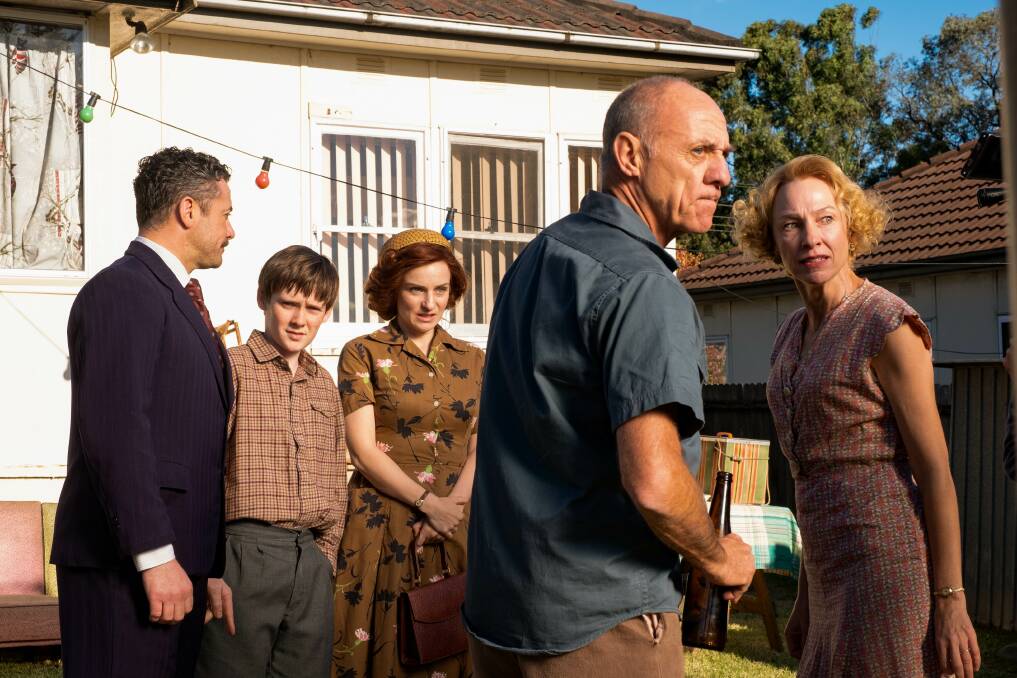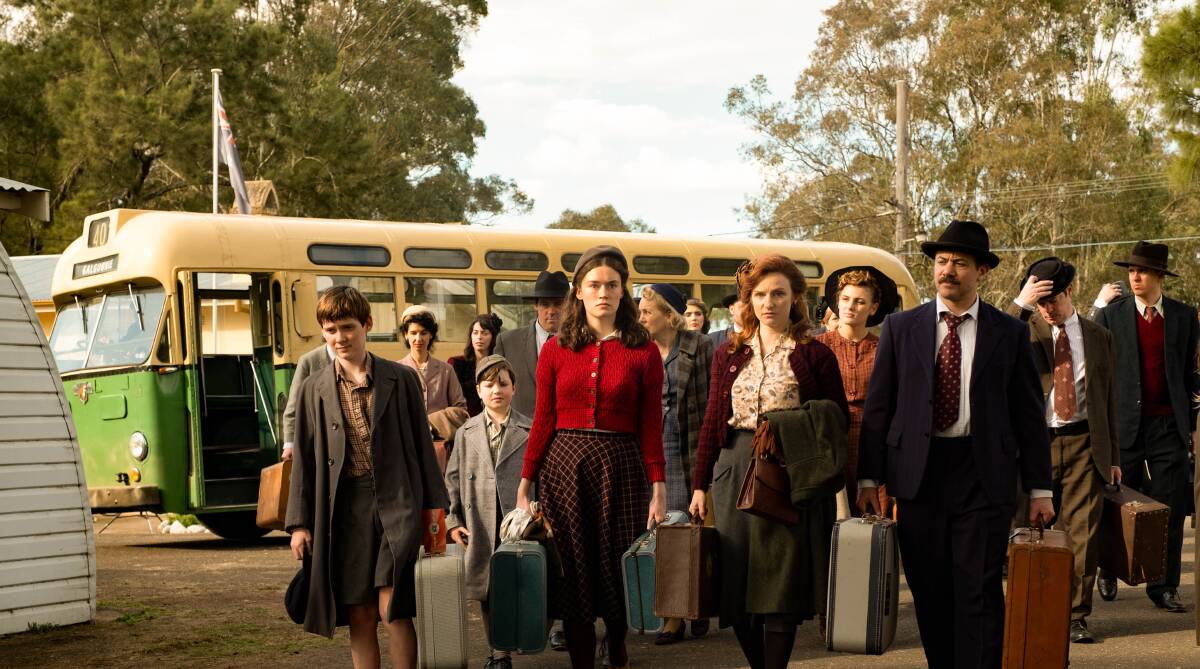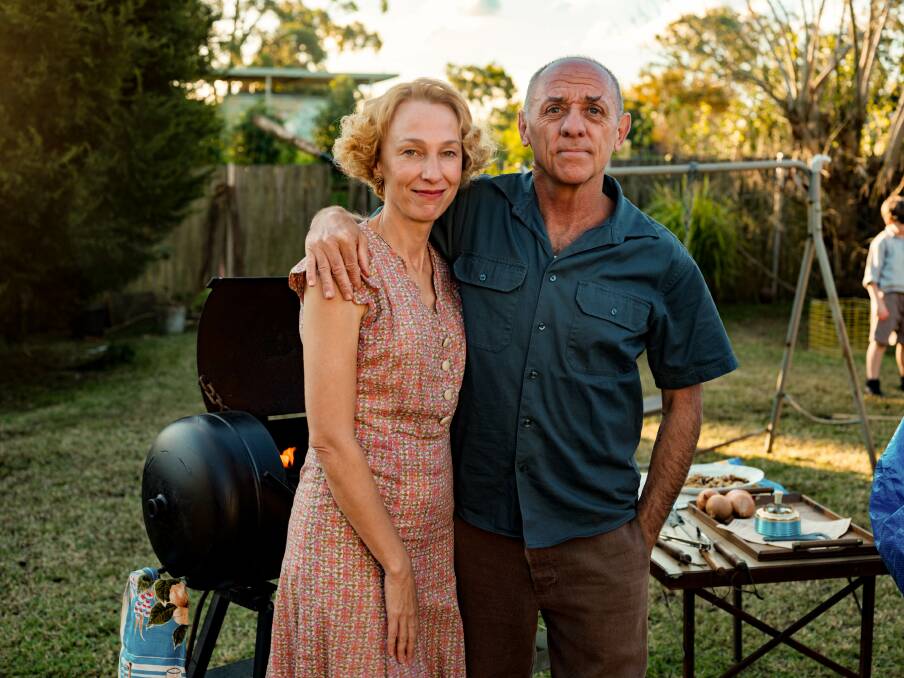
DAVID Field admits his role in historical drama series Ten Pound Poms forced him to delve into a dark place, but one that was sadly realistic.
Subscribe now for unlimited access.
$0/
(min cost $0)
or signup to continue reading
The six-part drama, which was created for the BBC and co-commissioned by Stan, explores Australia's Assisted Passage Migration Scheme.
The scheme was created by the Labor Chifley Government to rapidly boost the country's population following the Second World War.
From 1945 to 1981 about one million Europeans migrated to Australia through the program. Initially, the bulk of the migrants came from the UK and were charged 10 pounds, which coined the term "Ten Pound Pom."
Ten Pounds Poms is set in 1956 and follows Manchester builder Terry Roberts (Warren Brown), who is suffering from post-war PTSD and alcoholism, and wife Annie (Faye Marsay) as they flee Britain in search of sunshine, big houses and gardens.
However, what they discover on reaching their new home is a basic migrant camp and hostility from Australians.

Field (Chopper, Two Hands, Gettin' Square) plays Dean Spender, a hard-drinking racist yobbo, who shifts between joviality and seething hatred, particularly when addressing the Indigenous population.
Dean initially ostracises Terry when he comes to work on a building site, and at one point, even attempts to injure him in a workplace accident. The pair eventually bond after a fist fight and a heavy drinking session.
But becoming Dean's friend proves even more dangerous for Terry after the pair run over and kill an Aboriginal boy in a drunken late-night drive.
The 61-year-old Field has played various frightening and racist characters throughout his career in film and TV, and said he found it easy to slip into Dean's mind.
"Ultimately they come from the same place, which is fear. Fear of the other," Field said. "With this one it's a little different in terms of the skin colour and the language. It's more his attitude that they're gonna take our jobs."
One particularly torrid scene involves a backyard party where Dean invites Terry's English family to his house to experience a traditional Aussie barbecue.
However, the happy occasion of dancing to Chuck Berry's Maybellene is soon overshadowed when Dean launches into a racist rant about Indigenous people.

"I must say on that particular day I did apologise to the countrymen who have come and gone on that country before I did that scene, because it's pretty revolting," Field said.
"I did kind of apologise to the crew before we started just to let them know I'm going all the way with this, [by saying] 'So I'm very sorry if it offends anyone, but this is the reality, so this is where we're going'."
While Ten Pounds Poms' BAFTA-winning English screenwriter Daniel Brocklehurst (Brassic) does a thorough job exploring white Australia's embedded racism in the 1950s, however, the examination is fixed on only one side.
Ten Pound Poms feels primarily written for a UK audience.
Throughout the show many of the Australian characters like Dean and migrant camp boss JJ, played by Stephen Curry (The Castle, The Cup), are weighed down by ocker cliches. JJ's constant use of "hoo-roo" and "crikey" becomes grating 30 minutes into episode one.
The racial undertones are also one-sided. The English characters are seemingly shocked by white Australians' racism toward Indigenous people, as if the Motherland was devoid of prejudice.
However what the drama does emotively do is bring to life an intriguing chapter in British and Australian history that continues to shape the close historical and cultural ties between the two nations.
"This [England] was a country and an empire that basically conquered the world and then left themselves on this shitty little island," Field said.
"Would you rather live in Manchester or Meningie?
"All of a sudden you've got this country of convicts [Australia] and they're lining up to come down there. It's kind of ironic in its own way."
Ten Pound Poms is streaming now on Stan.


